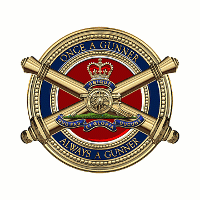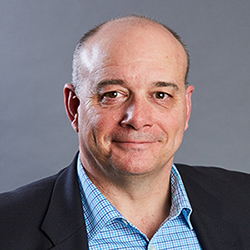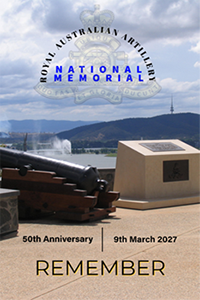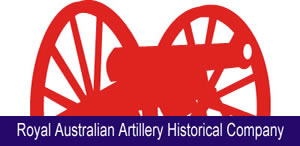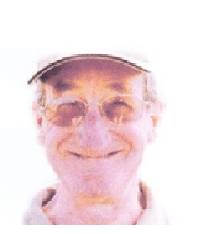| In 1957 with the expansion of the ARA, the regiment was relocated to Holsworthy NSW to which Bill had been allotted to “A” Field Battery as a Driver. In mid-1957, “A” Battery was warned for active service in Malaya, to replace 105th Field Battery who had completed their two year deployment and on the 25th September 1957, A Battery boarded the ship ‘New Australia ‘to sail to Malaya. On the 29th at 2015 hrs. while transiting the Torres Strait in the Prince of Wales Channel near Goode Island, the New Australia and the Norwegian oil tanker France Stove collided.
The New Australia lost its starboard anchor; the bow plates were ripped and gashed below the waterline allowing salt water to cascade back into the deep fresh water tanks. Oil from the tanker caught fire, so the Captain of the New Australia ordered ‘full speed ahead’ to clear the area and headed for Thursday Island. By altering the water ballast, the Captain of the New Australia was able to haul the ship to port in an attempt to have the damaged section of the hull above water. With the aid of 2 Troop Royal Australian Engineer divers and a welder they were able to stop the flow into the ship. The Army Engineers took the ships life boats ashore to collect sand to make 60 ton of concrete to seal the damaged hull.
After a four-day delay, the New Australia got under way at 1145 hours, and on the 3rd October the battery arrived in Singapore for further repairs, taking the Shipwrights six days to repair the ship and giving the gunners an unexpected leave period in Singapore and a taste of Asia. The battery finally arrived at George Town on Penang Island and was ferried to their new home, Quebec lines in Camp Butterworth on the Malay mainland.
Over the next 2 years Bill deployed with the Battery, harassing the enemy in Sungei Patani, Sungei Siput, Perak, Ipoh, Kuala Kansar, Taiping and many more areas of central and northern Malaya. As a driver, Bill had a varied collection of military vehicles to drive including the powerful Australian WW2 designed Daimler powered Dingo Scout car, the United States 4X4 heavy White scout car, The US GMC 6X6 trucks that towed the guns, to the ever-favourite WW2 Harley Davidson motor bike. 1959 October 14th saw the Battery aboard a troop ship homeward bound, this time a safe accident free journey aboard the MV Flaminia, but that’s not to say a cyclone in the Arafura Sea didn’t test the sea legs of the gunners. After a leave period Bill returned to “A” Battery at Holsworthy NSW, however the tropics were calling and in mid-1960 and he moved to Wacol Brisbane to join the newly raised 4th Field Regiment. Initially serving with 105 Battery, along with his life time mates Hughy Spark and Max Vandyke they eventually crossed over to the 103rd Field Battery. This was a smart move as the battery had just been warned for service in Malaya.
1961 was a busy year for the battery and hard training produced a strong solid unit - a unit that Bill would serve in for the next seven years. On the 7th October 1961 the battery sailed from Sydney again on board the ‘MV Flaminia’ after a very smooth trip the battery disembarked in Singapore for the road trip to Malacca in southern Malaya. By now the 28th Commonwealth Brigade had its entire force in one central location at Camp Terandak and a new gun saw the Battery enter a new deployment method using helicopters; this bought many changes to the way the battery deployed.
Bill excelled as a transport bombardier and it was only a matter of time before he was promoted to the rank of sergeant. In late 1962 Captain Peter Badcoe invited him to join his group for a 10-day visit to South Vietnam. What an experience! In 1963 the Brigade sent a 2RAR Battle Group to exercise with the SEATO troops on the northern border of Thailand, one group went to Ubon with the 103 Battery Gun group deploying to Lop Buri, north of Bangkok.
Captain Mike Crawford selected Bill to work as his 2 I/C in the running of a transit camp for the Brigade at one of the Thai Military air bases north west of Bangkok. This was a great challenge for both Diggers as it entailed finding the housing and feeding of around 1000 Commonwealth soldiers, both as they arrived in, and then left Thailand.
Captain Mike Crawford selected Bill to work as his 2 I/C in the running of a transit camp for the Brigade at one of the Thai Military air bases north west of Bangkok. This was a great challenge for both Diggers as it entailed finding the housing and feeding of around 1000 Commonwealth soldiers, both as they arrived in, and then left Thailand.
1963 saw a highly respected well-trained air mobile battery return to Holsworthy NSW. Over the next 2 years members of the Battery attended a range of Military courses and Bill attended the 1965 Warrant Officers course at the School of Artillery. The knowledge gained on this course enabled him in 1966 to step up and carry out gunnery duties that otherwise may have been beyond him. In 1966 when deployments to Vietnam escalated, 103 Battery was there, deploying to South Vietnam in May 1966 for 12 months.
It was a very busy time where National Servicemen would make up 90% of the strength of the unit. Right up until the last-minute, Regular Army NCOs’ were joining the unit. For various reasons, some unit warrant officers failed the Regiment in many ways by returning home early and it was our Bill Gallagher who stood up and filled the gaps that they left. First to go was our Battery Guide WO2 Don Nolan. Don had just finished two years in Borneo with 102 Field Battery. During this tour he studied the Malay and Indonesian languages and on arrival in Vietnam he found that he could also understand the Vietnamese language. Don was quickly moved to the Headquarter in Saigon,he spent the next 12 months there. don served a total of 3 years in Vietnam.
Bill Gallagher now became the WO2 Battery Guide of 103 Field Battery. Shortly after Don Nolan moved on, WO2 Squibb was sent home with a medical issue. Bill again stepped up and took on the role as BSM of Headquarters Battery. This required him to work in the Regimental Command Post as a duty officer. Next to go was the RSM, Bruno Sneddon and Bill’s role in the Regimental Headquarters expanded to include the duties of RSM and the control and recording the expenditure of gun ammunition and forecasting the replacement stock.
Bill carried out these duties with ease, the smile never left his face and he was on a roll. Next to depart was WO2 Bruce ‘Tubby‘ Taylor. Tubby developed a tropical medical condition and was sent back to Australia. By now a replacement for Squibb and the RSM had arrived in country. Bill now became the BSM of 103 Battery for the remained of the tour of South Vietnam with the rank of SGT.
In May 1967, the battery returned to Holsworthy as 103 Medium Battery, equipped with WWII 5.5in Guns with the role of supplying support the School of Artillery. It was the end of an era for 103 Battery, the Battery has not deployed operationally for 51 years. Bill left 103 Battery late in 1967 posted to an instructor’s position at the Portsea Officers School.
On the 17th December 1967, Bill was a first responder to a call that the Prime Minister of Australia, Harold Holt had gone missing while diving off the coast of Portsea. These were long days and nights for the staff and students of the school searching for clues to this mystery. Sadly, no body was ever found. During this posting Bill met Rose Riley, the Cadets orderly room civilian version of the Orderly Room Sergeant - they married in 1969 and were soon blessed with a son Philip.
The bugle blew once again in late 1970, when Bill was posted to 4th Field Regiment again, this time in Townsville. He and Major Noel De La Hunty, MC acted as Commanding Officer and Regimental Sergeant Major (RSM) for the Regiment as it regrouped in Townville post-Vietnam. 106 Field Battery returned home from Vietnam in February 1971 and commenced to retrain then deploy in December 1971 to Singapore as part of the 28 ANZUK Field Regiment based at Nee Soon Barracks. Noel De La Hunty MC was the Battery Commander with Bill Gallagher as his BSM. This was to be Bill’s seventh year of service in Malaya / Singapore and Vietnam. Later in this tour De La Hunty was promoted to the position of Commanding Officer 28 ANZUK Regiment and Major Jim Townley, who had served with Bill in Malaya 1961-63, then again in Vietnam 1966-67 was the new Battery Commander of the Battery known as the Turtles - slow and steady. A daughter Debbie was born while the Gallagher’s were in Singapore.
When the Battery returned to Australia, Bill was promoted to the Rank of Warrant Officer Class 1 and posted to Holsworthy as the RSM 8/12Medium Regiment. Bill was a very popular RSM caring and guiding his men in their gunner careers with regular promotion courses. While he was in Holsworthy he drove to Broken Hill with some of the troops where he was the Chief Marshal to lead the ANZAC Parade.
Bill’s final posting was Central Army Records Office (CARO) in Melbourne where he was awarded the Queen’s Jubilee Medal. After 2 years he resigned to spend more time with his children Philip and Debbie and it was only natural that Bill took his family back home to Warragul to live. He was lost, didn’t know what he wanted to do. He used to comment: “who wants a second-hand jungle fighter?” Family and friends offered him work painting their houses while he pondered his future, this eventually built up to a successful business.
Bill, always believing in “giving the young ones a go,” always hired apprentices and took students on work experience. Bill didn’t really socialise very much preferring to drive Philip to his cycle races on velodromes around Victoria in the summer, and to road races around Australia during the year as Philip raced at a national level.
He was very proud of Debbie who achieved a black belt at karate. This gave him good bragging rights. Not long after moving to Warragul, the union movement became very strong in secondary schools, which he hated, so he became one of the founding fathers of St Pauls Grammar School. To raise funds, a catering service was set up and he spent many Friday and Saturday nights washing dishes after functions.
Bill retired at age 63, continued with his vegie garden, walking daily and reading books. He was the major babysitter for his 3 grandsons and saw every kid’s movie available. As the grand children grew he became “poppy’s taxi”. Bill loved working in his vegetable garden and only stopped when his health deteriorated.
He and Rose travelled in small group tours to outback areas of Australia, where he was amused by the interpretation of “camping in the bush” This was in permanent tents, with innerspring beds and én suites. There is not much of the outback he hadn’t seen.
Surprising to most, he loved opera, travelled to Sydney to see Aida on the harbour and to Naracoorte to listen to the Australian Opera Scholars performing in a cave.
After Debbie was diagnosed with debilitating lupus, baby Nathan passed (aged 3 months), then Philip had a stroke (aged 38yrs), which he wasn’t expected to recover from, this had Bill questioning what life was all about. Then as his own health worsened he became anti-social and lost the will to live. So humble he was, that he didn’t believe his life was worth much and it became hard to motivate him.
In April 2018 his health worsened, he lost the will to live and finally succumbed to heart disease and pneumonia.
|
